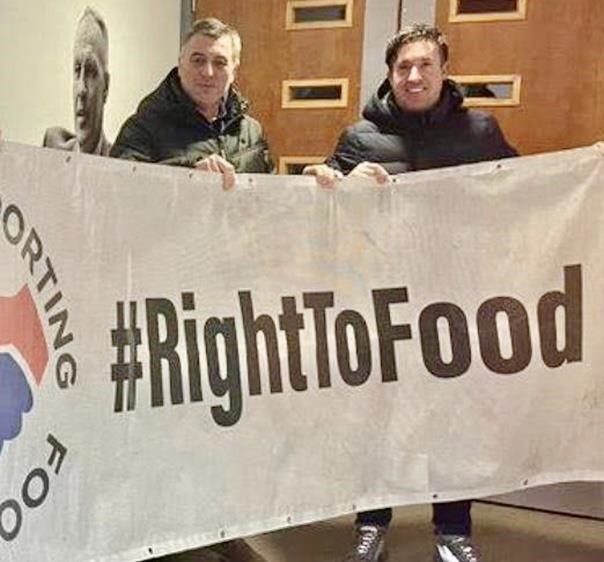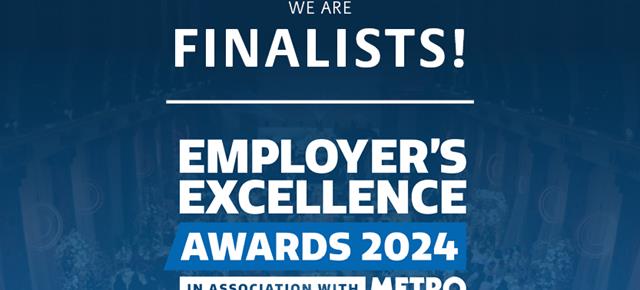Community kitchen opens in West Derby Liverpool
12 October 2022
Ian Byrne MP and LFC legend Robbie Fowler join forces to launch Community Kitchen for hungry families in West Derby, Liverpool ahead of city-wide rollout
- A generous donation from former Liverpool and England striker Robbie Fowler is funding a pilot of a Community Kitchen in West Derby and will also support food pantries across Liverpool.
- The community kitchen project is called The Scouse Kitchen and has been set up by Labour MP for Liverpool West Derby, Ian Byrne, who is also a co-founder of Fans Supporting Foodbanks. Byrne leads on the Right To Food campaign in Parliament, which aims to legislate for an end to hunger in the UK. One of this campaign’s five key demands is the introduction of Community Kitchens: ianbyrne.org/righttofood
- The Scouse Kitchen is a pilot run by Ian Byrne MP as the first step in a planned city- wide rollout of Community Kitchens as part of the Right To Food Campaign.
- The Scouse Kitchen is inspired by the wartime model of social eating and takes place between Tuesday 11 October and Thursday 13 October at St Celia's Junior School in Tuebrook, West Derby, Liverpool. It will be open between 5pm and 6.30pm from Tuesday 11 to Thursday 13 October 2022.
- The Scouse Kitchen concept has been influenced by the research of Professor Bryce Evans at Liverpool Hope University, who believes communal dining could replace foodbanks in tackling food poverty in the UK.
Liverpool legend Robbie Fowler has thrown his support behind a Community Kitchen initiative which has the potential to change the way we tackle food poverty in this country, according to a leading academic. The former Premier League star has made a large donation to grassroots community organisation Fans Supporting Foodbanks, to fund food pantries across Liverpool and to run the trial of a ‘Scouse Kitchen’ created by Labour MP for Liverpool West Derby, Ian Byrne.
Mr Byrne leads on the Right to Food campaign in Parliament, which aims to make access to food a legal right for all. Community Kitchens are one of five key demands of the campaign and Mr Byrne views the Scouse Kitchen initiative as a pilot for this element of the campaign.
He said: “The Scouse Kitchen pilot we are running this week in my West Derby constituency is a much-needed intervention for many families living here. I have mums, dads and carers in West Derby who cannot afford to put food on their family’s table, and I wanted to provide this opportunity for them to sit down together as a family in a restaurant setting and eat a meal together in dignity, for free.
“We know that food poverty causes endless problems for children, affecting their educational attainment and life chances and leading to poor health, reduced life expectancy, malnutrition and obesity.
“Food poverty also has a huge impact on human dignity and social cohesion in our polarised nation of food banks next to investment banks. Too many of our people experience despair and humiliation every day and my aim with this project is to provide a safe space in which West Derby families can eat together in dignity. Social eating, such as we are trialling in the Scouse Kitchen, is an important step forward in how communities respond to hunger. It has none of the stigma too often associated with foodbanks and gives families an opportunity to eat together around a table. Dignity is key and we believe this model of social eating will provide that. Food pantries are also considered to offer a more dignified response to hunger than foodbanks, and we now operate several such pantries across Liverpool.
“In terms of my longer-term goal of ending the food poverty, I am leading Right To Food campaign in Parliament which aims to see an end to hunger in the UK. One of our five key demands is to introduce Community Kitchens across the country, and I see our Scouse Kitchen as the first step in achieving that.
Fowler’s donation will also be used to fund food pantries across Liverpool, as well as the Scouse Kitchen trial, which is designed to be a healthier, more sustainable, and less demeaning alternative to the foodbank, where people can sit, eat, talk and 'break bread' together.
LFC legend Fowler said: “I am delighted to be able to support the fantastic work of Ian Byrne MP and Fans Supporting Foodbanks in this way. The Community Kitchen idea is inspiring, and I am proud to be part of it. Too many families in Liverpool and across the UK are really struggling to put food on the table and that is completely unacceptable in this day and age. Food pantries and Community Kitchens provide dignity as well as food to those who are struggling, and I am humbled to be able to help.”
Dave Kelly, Chair of Fans Supporting Foodbanks, said: “Massive thanks to Robbie Fowler from all at Fans Supporting Foodbanks for this very generous donation. We hope that the piloting of a community kitchen here in Liverpool can serve as a template going forward for a national rollout across the Fans Supporting Foodbanks network.”
The Scouse Kitchen pilot takes place at St Celia's Junior School in Tuebrook, Liverpool, and will be open between 5pm and 6.30pm from Tuesday 11 to Thursday 13 October.
In setting up the Scouse Kitchen pilot in West Derby, Ian Byrne MP was influenced by the research of Professor Bryce Evans, a social history expert at Liverpool Hope University, who believes community kitchens could support or even replace foodbanks as a means of combatting the cost-of-living crisis. Professor Evans, who specialises in modern world history at Liverpool Hope University, has a particular interest in food history and wrote Feeding the People in Wartime Britain, a book which examines the impact of community kitchens that operated nationwide between 1917 and the 1960s.
Evans said: “The Scouse Kitchen will use the principles of social eating we saw in Britain during the 20th century to trial an alternative way of tackling food poverty. Community kitchens were successful during wartime and the years after, and they operated in complete contrast to the foodbank model which has emerged in the last 15 years.
“Foodbanks offer invaluable support to those in need of emergency handouts, but they provide basic food and there is a stigma around using them due to people sometimes being required to prove they are ‘poor enough’ to access them. Social eating takes a more holistic approach. It allows you to serve fresh, healthy food in a community setting which improves people’s physical and mental health whilst also combating fuel poverty at a time when many foodbank users are reporting that they are unable to use appliances to prepare or store food.”
















